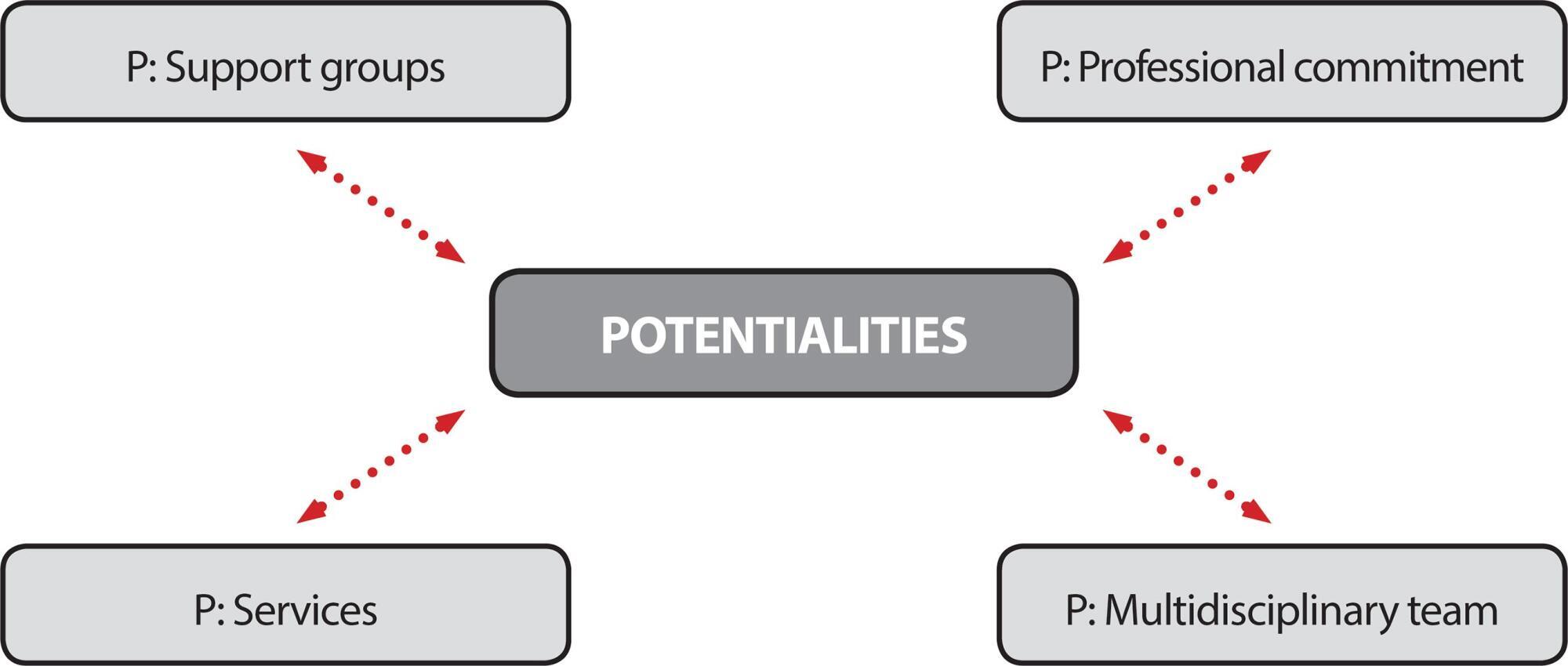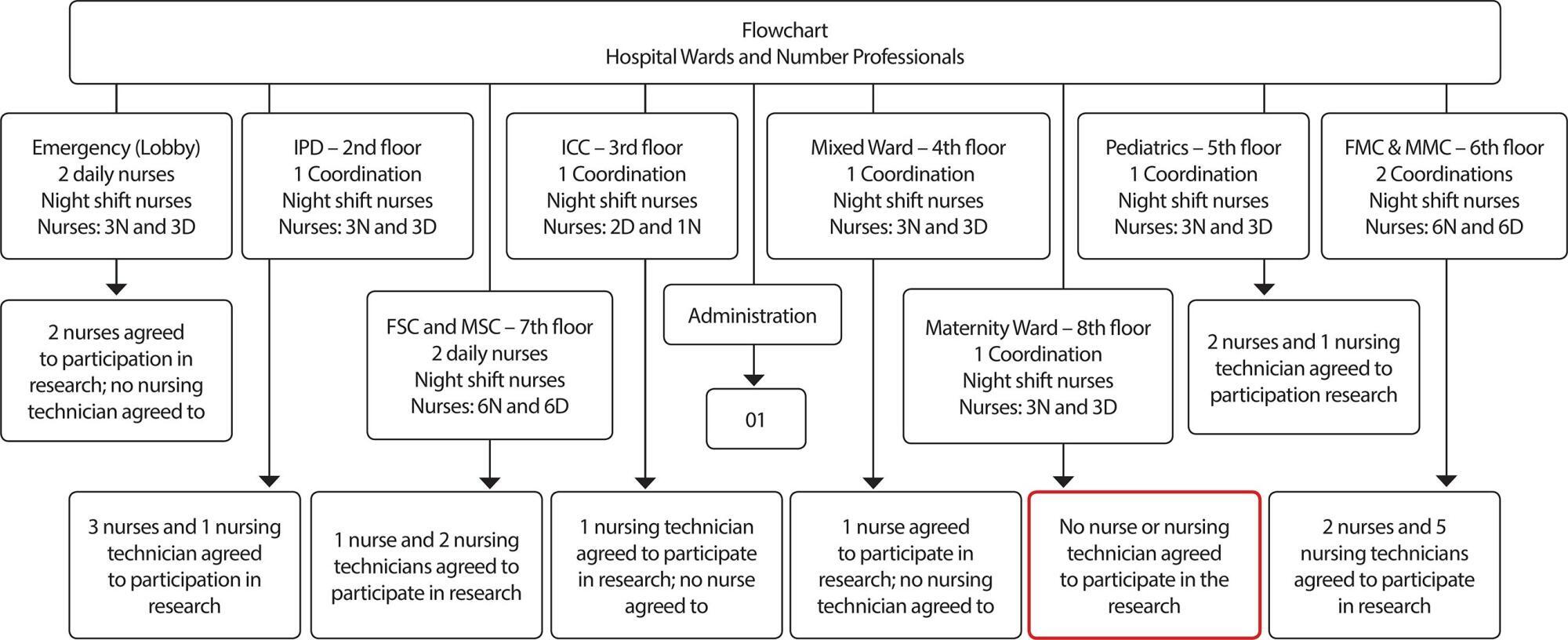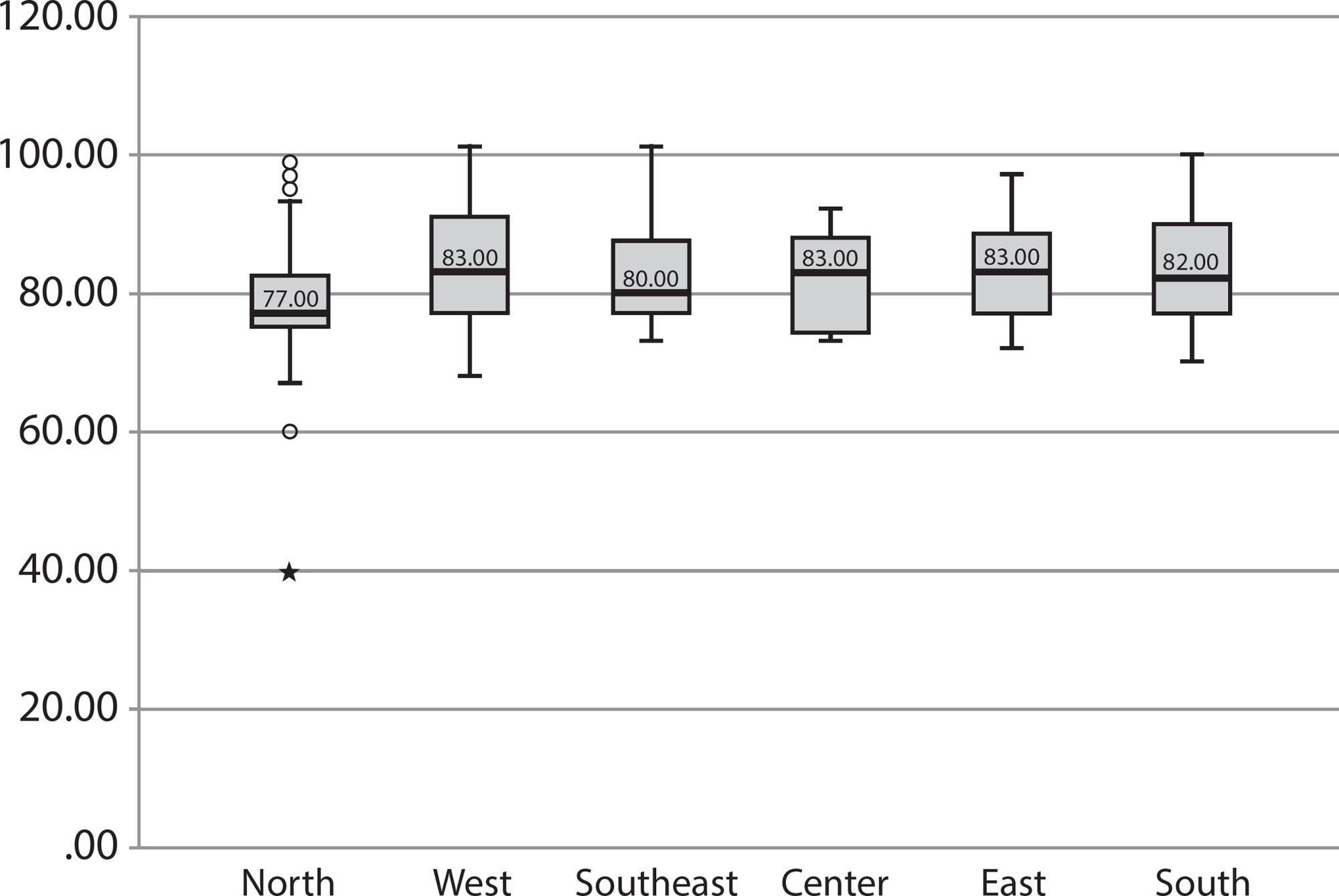-
ORIGINAL ARTICLE08-26-2024
Factors associated with COVID-19 death in pregnant women hospitalized in Intensive Care Units
Revista Brasileira de Enfermagem. 2024;77(5):e20230172
Abstract
ORIGINAL ARTICLEFactors associated with COVID-19 death in pregnant women hospitalized in Intensive Care Units
Revista Brasileira de Enfermagem. 2024;77(5):e20230172
DOI 10.1590/0034-7167-2023-0172
Views0See moreABSTRACT
Objectives:
to evaluate the factors associated with COVID-19 death in pregnant women hospitalized in Intensive Care Units in Brazil.
Methods:
this ecological study was conducted using secondary data from Brazilian pregnant women with COVID-19 hospitalized in Intensive Care Units between March 2020 and March 2022. Univariate analysis and logistic regression were employed.
Results:
out of 3,547 pregnant women with COVID-19 hospitalized in Intensive Care Units, 811 died (22.8%). It was found that lack of COVID-19 vaccination (OR: 2.73; 95% CI: 1.83; 4.04), dyspnea (OR: 1.73; 95% CI: 1.17; 2.56), obesity (OR: 1.51; 95% CI: 1.05; 2.17), chronic cardiovascular disease (OR: 1.65; 95% CI: 1.14; 2.38), and non-white race/color (OR: 1.29; 95% CI: 1.00; 1.66) were independently and significantly associated with death.
Conclusions:
it is concluded that vaccination status, presence of comorbidities, and clinical and ethnic-racial characteristics are associated with COVID-19 death in pregnant women hospitalized in Intensive Care Units in Brazil.
-
ORIGINAL ARTICLE08-26-2024
Influence of the leukoreduction moment of blood components on the clinical outcomes of transfused patients in the emergency department
Revista Brasileira de Enfermagem. 2024;77(5):e20230293
Abstract
ORIGINAL ARTICLEInfluence of the leukoreduction moment of blood components on the clinical outcomes of transfused patients in the emergency department
Revista Brasileira de Enfermagem. 2024;77(5):e20230293
DOI 10.1590/0034-7167-2023-0293
Views0See moreABSTRACT
Objectives:
to investigate the influence of the leukoreduction moment (preor post-storage) of blood components on the clinical outcomes of patients transfused in the emergency department.
Methods:
retrospective cohort study of patients aged 18 years or older who received preor post-storage leukoreduced red blood cell or platelet concentrate in the emergency department and remained in the institution for more than 24 hours. A generalized mixed-effects model was applied in the analyses.
Results:
in a sample of 373 patients (63.27% male, mean age 54.83) and 643 transfusions (69.98% red blood cell), it was identified that the leukoreduction moment influenced the length of hospital stay (p<0.009), but was not dependent on the transfused blood component (p=0.124). The leukoreduction moment had no effect (p>0.050) on transfusion reactions, healthcare-associated infections, or mortality.
Conclusions:
patients who received pre-storage leukoreduced blood components in the emergency department had a shorter length of hospital stay.

-
ORIGINAL ARTICLE08-26-2024
Leadership styles and personal values of professors at a school of nursing
Revista Brasileira de Enfermagem. 2024;77(5):e20230333
Abstract
ORIGINAL ARTICLELeadership styles and personal values of professors at a school of nursing
Revista Brasileira de Enfermagem. 2024;77(5):e20230333
DOI 10.1590/0034-7167-2023-0333
Views0See moreABSTRACT
Objectives:
to identify professors’ leadership styles and personal values.
Methods:
a quantitative, descriptive-exploratory study. Population was made up of professors in doctoral category 1 at a public university in the state of São Paulo. Data collection took place from June to August 2021. Sociodemographic characterization was extracted, and the Leadership Team Values Assessment was applied. Data were analyzed using measures of central tendency.
Results:
population included 13 professors. The level that represents authentic leadership was the most prevalent. The commitment, positive attitude and trust values stood out. The level portrayed by visionary leadership was the least identified.
Conclusions:
professors’ personal values provide a theoretical basis for guiding and analyzing professors’ leadership styles. Leadership in the educational context must be recognized and studied to promote a more comprehensive and effective approach to developing and improving educational leaders.

-
EDITORIAL08-19-2024
Sexual abuse, abortion and public health in Brazil: when moral judgment accentuates inequities
Revista Brasileira de Enfermagem. 2024;77:e77suppl0401
Abstract
EDITORIALSexual abuse, abortion and public health in Brazil: when moral judgment accentuates inequities
Revista Brasileira de Enfermagem. 2024;77:e77suppl0401
DOI 10.1590/0034-7167.202477suppl0401
Views0Here is an academic-political editorial that aims to call on the scientific field to reflect on the dangers of decisions regarding the right to abortion under moral rules, since there is no evidence that such a perspective translates into practices of care, protection of childhood and gender equity – elements that are so urgent and […]See more -
ORIGINAL ARTICLE08-19-2024
Bioethical issues in the family health strategy: Considerations for nursing care management
Revista Brasileira de Enfermagem. 2024;77:e20220818
Abstract
ORIGINAL ARTICLEBioethical issues in the family health strategy: Considerations for nursing care management
Revista Brasileira de Enfermagem. 2024;77:e20220818
DOI 10.1590/0034-7167-2022-0818
Views0See moreABSTRACT
Objective:
To understand the bioethical issues involved in the care management of nurses working in the Family Health Strategy.
Method:
A qualitative study was conducted through five focus groups with 36 nurses selected in the sample. Thematic content analysis was performed based on the bioethical framework, and the synthesis was presented in a conceptual map.
Results:
Bioethical issues were identified in the nursing care practice, related to both specific bioethical themes and the peculiarities of the work. Additionally, challenges and facilitators that interfere with addressing these issues were identified.
Final considerations:
Understanding the bioethical issues involved in the care management of nurses was possible with the theoretical support of different bioethical perspectives. The identified issues relate to persistent and current themes in the field of bioethics. However, some aspects intrinsic to daily practice are still imperceptible to professionals, contributing to the difficulty of discussing bioethics in this care model.

-
ORIGINAL ARTICLE08-19-2024
The use of individual tracking programs in public health: a bioethics dilemma
Revista Brasileira de Enfermagem. 2024;77:e20230041
Abstract
ORIGINAL ARTICLEThe use of individual tracking programs in public health: a bioethics dilemma
Revista Brasileira de Enfermagem. 2024;77:e20230041
DOI 10.1590/0034-7167-2023-0041
Views0See moreABSTRACT
Objective:
to understand the bioethical perspectives on mobile tracking device use.
Methods:
theoretical study based on action research, carried out with eight graduate students from a public university. A focus group was used, with a thematic content analysis methodology with a codebook structure, approved by the Research Ethics Committee.
Results:
from the analysis, there was a concern about using devices after the pandemic ended. Using or not the device, rights inherent to humans, legislation and effectiveness of methods deepen interpretations, moving participants from a personalistic conception of the topic to a vision focused on professional implications about the methods.
Final considerations:
the debate on the impact of using technological devices on health, especially those that imply restriction of rights that refer to individuals’ private life, involves a discussion of a professional nature, in addition to requirement for clear rules on the topic.
-
08-19-2024
Abuso sexual, aborto y salud pública en Brasil: cuando el juicio moral acentúa las inequidades
Revista Brasileira de Enfermagem. 2024;77:e77suppl0401
Abstract
Abuso sexual, aborto y salud pública en Brasil: cuando el juicio moral acentúa las inequidades
Revista Brasileira de Enfermagem. 2024;77:e77suppl0401
DOI 10.1590/0034-7167.202477suppl0401es
Views0He aquí un editorial académico-político que pretende convocar al campo científico a reflexionar sobre los peligros de decisiones sobre el derecho al aborto bajo reglas morales, ya que no hay evidencia de que tal perspectiva se traduzca en prácticas de cuidado, protección infantil y equidad de género, elementos tan urgentes y necesarios para la enfermería. […]See more -
08-19-2024
Abuso sexual, aborto e saúde pública no brasil: quando o julgamento moral acentua as iniquidades
Revista Brasileira de Enfermagem. 2024;77:e77suppl0401
Abstract
Abuso sexual, aborto e saúde pública no brasil: quando o julgamento moral acentua as iniquidades
Revista Brasileira de Enfermagem. 2024;77:e77suppl0401
DOI 10.1590/0034-7167.202477suppl0401pt
Views0Eis aqui um editorial acadêmico-político que tem como objetivo convocar o campo científico a refletir sobre os perigos das decisões relativas ao direito ao aborto sob réguas morais, uma vez que não há evidências de que tal perspectiva se traduza em práticas de cuidado, proteção à infância e equidade de gênero – elementos tão urgentes […]See more
-
REVIEW07-17-2020
Approaches to workload in psychiatric and mental health nursing
Revista Brasileira de Enfermagem. 2020;73:e20190620
Abstract
REVIEWApproaches to workload in psychiatric and mental health nursing
Revista Brasileira de Enfermagem. 2020;73:e20190620
DOI 10.1590/0034-7167-2019-0620
Views0See moreABSTRACT
Objective:
to investigate approaches to workload in psychiatric and mental health nursing in Brazilian and international production of knowledge
Methods:
integrative literature review using six databases, covering January 2005 to March 2019. Articles in full in English, Spanish and Portuguese were included.
Results:
the sample consisted of 23 original articles classified as quantitative or emotional. The quantitative dimension was addressed in 12 articles and included: assessing patient care needs, identifying activities performed by the team, measuring time spent and developing and validating a measurement instrument. The emotional dimension included 11 articles the focus of which was on identifying stressors in the workplace, psychosocial risks and coping strategies.
Conclusion:
strategies were found for measuring workload and assessing the impact of stressors on nursing teams.
-
ORIGINAL ARTICLE05-18-2020
Women in situations of sexual violence: potentialities and weaknesses of the intersectoral network
Revista Brasileira de Enfermagem. 2020;73(4):e20190856
Abstract
ORIGINAL ARTICLEWomen in situations of sexual violence: potentialities and weaknesses of the intersectoral network
Revista Brasileira de Enfermagem. 2020;73(4):e20190856
DOI 10.1590/0034-7167-2018-0856
Views0See moreABSTRACT
Objectives:
to identify potentialities and weaknesses of the intersectoral network for women in situations of sexual violence, from the perspective of Intervention Bioethics and the Universal Declaration on Bioethics and Human Rights.
Methods:
qualitative study conducted with multidisciplinary team members who work in intersectoral care services for women subject to sexual violence. It was held in a municipality in southern Brazil. An intentional sample, totaling 30 professionals. Semi-structured interview was used from January to April 2016. Interviews were analyzed by Thematic Analysis.
Results:
two categories emerged: potentialities and weaknesses related to the intersectoral network. Potentialities confirm the importance of the articulated intersectoral network; weaknesses such as lack of organized flow and disarticulation of services result in women revictimization and care fragmentation.
Final Considerations:
it is necessary to articulate services and qualify professionals. The Intervention Bioethics and the Universal Declaration on Bioethics and Human Rights foster discussions that contribute to how to organize and sustain the intersectoral network.

-
ORIGINAL ARTICLE07-10-2020
Mental Health Nursing: waiting room intervention in integral health care
Revista Brasileira de Enfermagem. 2020;73:e20180886
Abstract
ORIGINAL ARTICLEMental Health Nursing: waiting room intervention in integral health care
Revista Brasileira de Enfermagem. 2020;73:e20180886
DOI 10.1590/0034-7167-2018-0886
Views0See moreABSTRACT
Objective:
To describe and to analyze the proposal for intervention in the waiting room as a possibility for Nursing in mental health in group context.
Method:
Descriptive study with a qualitative approach, convergent care type, developed in a Psychosocial Care Center for Alcohol and Drugs in the interior of the state of Goiás.
Results:
The service in the waiting room provided moments of reflection, knowledge, learning, listening and exchanging experiences.
Final considerations:
The meetings in the waiting room favored the articulation between theoretical knowledge and the practice of nursing care in groups, constituting a space with a valuable locus for the development of educational and support actions in health services, to be undertaken by the nurse and, also, by other professionals of the health team.
-
ORIGINAL ARTICLE08-10-2020
Risk management in the scope of nursing professionals in the hospital setting
Revista Brasileira de Enfermagem. 2020;73(6):e20190303
Abstract
ORIGINAL ARTICLERisk management in the scope of nursing professionals in the hospital setting
Revista Brasileira de Enfermagem. 2020;73(6):e20190303
DOI 10.1590/0034-7167-2019-0303
Views1See moreABSTRACT
Objective:
To evaluate occupational hazards affecting nursing professionals’ health in the environment of the hospital.
Method:
Descriptive-exploratory research with a qualitative approach.
Results:
The main hazards affecting nursing professionals were work overload due to the large number of patients or the small number of professionals, inadequate infrastructure, and insufficient organizational management. It became evident the work interferences in the nursing professional’s life are enormous. Despite the existence of health occupational risk management, there is still a shortage of bigger endeavors to be employed in the hospital routine. As a main result of the study, a Standard Operational Protocol (SOP) for biological risk was created to be applied in a hospital setting.
Conclusion:
Based on the identification of occupational hazards, it was suggested the Standard Operational Protocol which should be standardized to manage biological occupational hazards, to ensure the adequate flow of procedures after the exposure, as well as the occupational safety of nursing professionals.

-
ORIGINAL ARTICLE07-06-2020
Time and quality of admissions: nursing workload
Revista Brasileira de Enfermagem. 2020;73(5):e20190267
Abstract
ORIGINAL ARTICLETime and quality of admissions: nursing workload
Revista Brasileira de Enfermagem. 2020;73(5):e20190267
DOI 10.1590/0034-7167-2019-0267
Views0See moreABSTRACT
Objectives:
to measure the average time spent by the nursing staff during patient admission and investigate their compliance with the activities described by the Nursing Interventions Classification; evaluate the degree of interference in the workload of the team.
Methods:
observational with time measurement through software. We followed 199 admissions made by the nursing staff in seven units, using two validated instruments. Total scores ≥ 70% and 50% validated the process.
Results:
the average time of nurses ranged from 5.5 (standard deviation = 2.3) to 13 (standard deviation = 1.1) minutes; and the auxiliary / technician, between 4.7 (standard deviation = 2.1) and 6.8 (standard deviation = 2.0) minutes (p ≤ 0.01). We qualified six admissions made by nurses and 33 by assistants/technicians. The intervention spent 16.3% to 31.5% of the working hours of the team.
Conclusions:
admission impacts nursing workload and needs to be considered both in the measurement of activities and in the sizing of the nursing staff.
-
ORIGINAL ARTICLE09-21-2020
Nurses’ attitudes facing the family involvment in caring for people with mental disorder
Revista Brasileira de Enfermagem. 2020;73:e20200041
Abstract
ORIGINAL ARTICLENurses’ attitudes facing the family involvment in caring for people with mental disorder
Revista Brasileira de Enfermagem. 2020;73:e20200041
DOI 10.1590/0034-7167-2020-0041
Views0See moreABSTRACT
Objective:
To characterize the attitudes of Primary Health Care nurses, regarding the involvement of the family in the care for people with Mental Disorder.
Methods:
Correlational study with 257 nurses from the city of São Paulo. The scale “Importance of Families in Nursing Care- Nurses’ Attitudes” was used. For the analysis, descriptive and inferential statistics were used.
Results:
The scale scores were high, with a mean value of 82.1 (SD=8.4) favorable to the families’ involvement, and are related to being a nurse in the Family Health Strategy (p<0.001), having received education/training in family nursing (p<0.005), the workload of 40 hours/week (p<0.005), working in the West, East and Center Regions (p<0.005).
Conclusion:
Most nurses have positive attitudes towards the involvement of families, a relevant indicator for their inclusion in the health-mental care process.

-
07-09-2021
Algorithm for transitional care for caregivers of dependent older adults: a validation study
Revista Brasileira de Enfermagem. 2021;74:e20200625
Abstract
Algorithm for transitional care for caregivers of dependent older adults: a validation study
Revista Brasileira de Enfermagem. 2021;74:e20200625
DOI 10.1590/0034-7167-2020-0625
Views0See moreABSTRACT
Objective:
To construct and validate an algorithm for transitional care for caregivers of dependent older adults.
Method:
This was a methodological study developed in three phases: a literature review, designing an algorithm, and its validation by a peer panel with twenty-seven experts selected according to pre-defined inclusion criteria.
Results:
The algorithm predicted interventions in transitional care (hospital stay, at discharge, and 30 days at home post-discharge) aimed at the exercise of the caregiver role; needs assessment; training in care management of dependent older adults and management of self-care, and ensuring continuity of care (of older adults and caregivers).
Conclusion:
Agreement between expert raters and a reliability test of 0.92 indicate that the algorithm can be used by professionals to decide the transitional care interventions to be administered to the caregivers of dependent older adults. Future studies should be conducted to perform its clinical validation.

-
REVIEW07-14-2021
Stress level experienced by participants in realistic simulation: a systematic review
Revista Brasileira de Enfermagem. 2021;74(4):e20201151
Abstract
REVIEWStress level experienced by participants in realistic simulation: a systematic review
Revista Brasileira de Enfermagem. 2021;74(4):e20201151
DOI 10.1590/0034-7167-2020-1151
Views0See moreABSTRACT
Objectives:
to identify the available evidence regarding stress levels experienced by participants in education based on a realistic simulation.
Methods:
systematic review that included randomized clinic trials on electronic databases: Cumulative Index to Nursing and Allied Health Literature, Cochrane Library, Latin-American and Caribbean Literature in Health Sciences, LIVIVO, PubMed, Scopus, and Web of Science. The additional search was performed on Google Scholar and OpenGrey. All searches occurred on September 24, 2020. The methodologic quality of the results was evaluated by the Cochrane Collaboration Risk of Bias Tool.
Results:
eighteen studies were included, which evaluated the participants’ stress using physiologic, self-reported measures, or the combination of both. Stress as experienced in a high level in simulated scenarios.
Conclusions:
evidence of the study included in this systematic review suggest that stress is experienced in a high level in simulated scenarios.

Search
Search in:
Nuvem de Tags
Adolescente (85) Atenção Primária à Saúde (239) COVID-19 (91) Criança (91) Cuidados de Enfermagem (269) Educação em Enfermagem (151) Educação em Saúde (139) Enfermagem (930) Enfermagem Pediátrica (86) Estudantes de Enfermagem (77) Estudos de Validação (131) Família (87) Idoso (208) Promoção da Saúde (99) Qualidade de Vida (104) Saúde do Trabalhador (86) Saúde Mental (145) Saúde Pública (82) Segurança do Paciente (150) Tecnologia Educacional (100)



